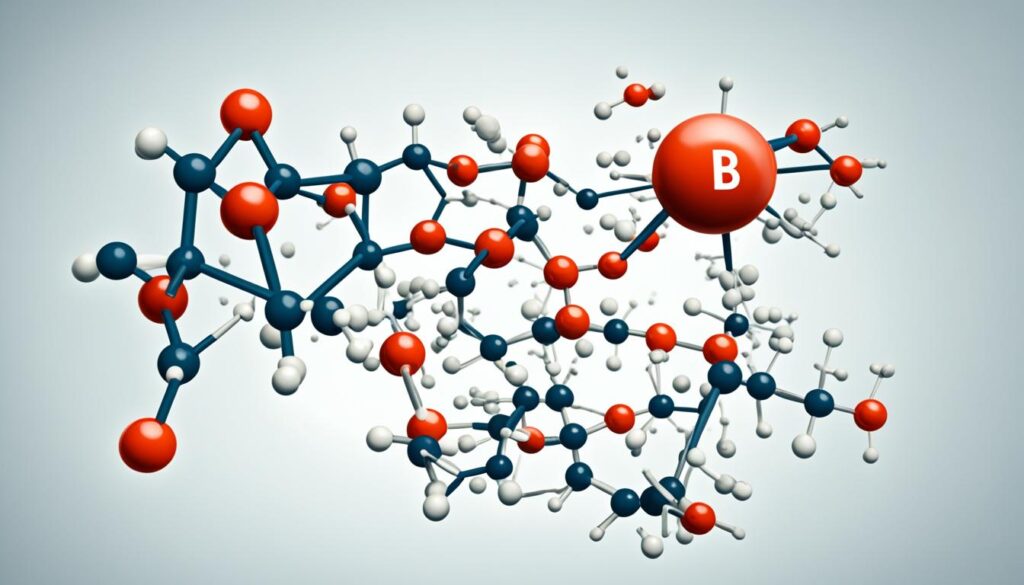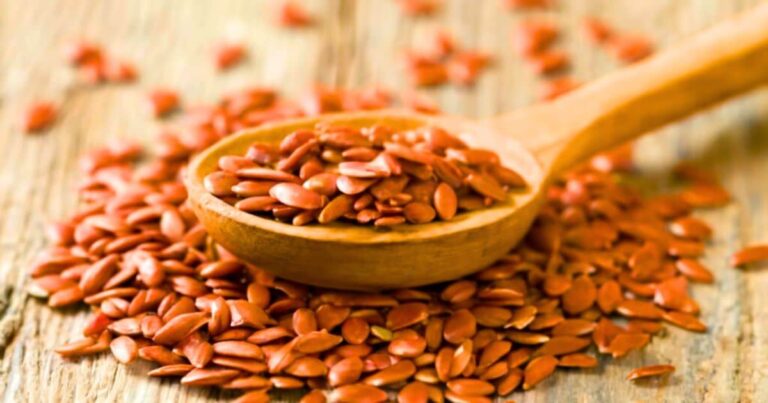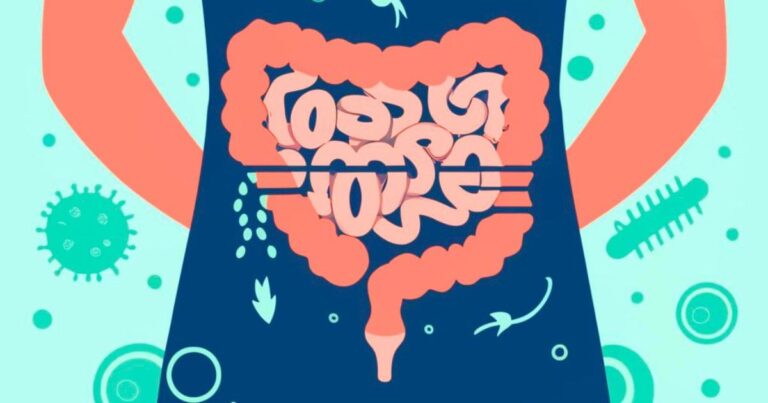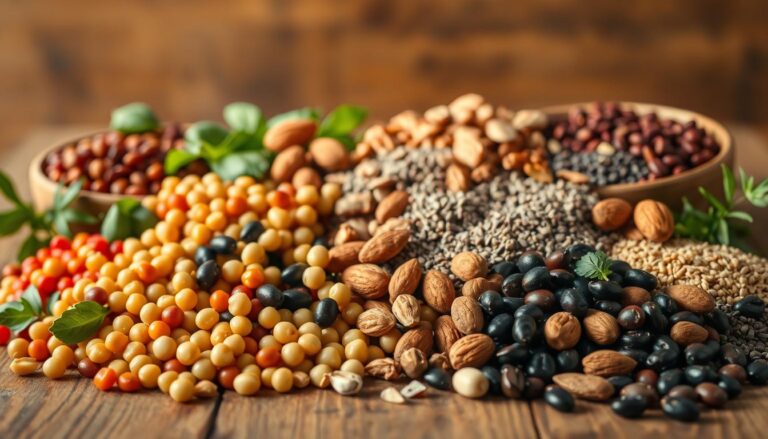Have you ever wondered how to keep your digestive system running smoothly? It might surprise you, but the answer could be vitamin B1, also known as thiamine. Let’s discover how this simple vitamin can help you achieve regular bowel movements.
Is getting enough of this nutrient the secret to better digestion? Join us as we explore the link between vitamin B1 and bowel regularity.
Key Takeaways
- Vitamin B1, or thiamine, is a vital nutrient that may play a role in reducing the risk of constipation.
- Thiamine supports digestive health and regularity by aiding in nutrient absorption and gut motility.
- Ensuring adequate fiber intake and incorporating whole, nutrient-dense foods can also help promote bowel regularity.
- B-complex vitamins, including thiamine, work synergistically to support overall digestive function.
- Natural remedies, such as herbal supplements, may offer additional support for those struggling with constipation.
The Mighty Thiamine: A Nutritional Powerhouse
Vitamin B1, also known as thiamine, is crucial for our health and well-being. It’s part of the vitamin B complex. Thiamine supports our digestive health and helps with regular bowel movements.
Unveiling the Benefits of Vitamin B1
Thiamine is key for a healthy digestive system. It helps our bodies absorb nutrients from food. This ensures we get the vitamins, minerals, and other compounds we need for good health.
Thiamine also helps with gut motility. This is the movement of food through our digestive tract. It helps with bowel regularity and keeps our digestive health in check.
Thiamine’s Role in Digestive Health
Vitamin B1 does more than just help with nutrient absorption and gut motility. It supports the production of bile, which helps digest and absorb fats. Thiamine also helps keep the gut microbiome balanced. This is important for good digestive function.
Eating foods rich in thiamine can boost your digestive health and help with regular bowel movements. You can find thiamine in whole grains, legumes, nuts, and seeds. These foods are easy to add to a healthy diet.

“Thiamine is a powerhouse nutrient, playing a vital role in maintaining a healthy digestive system and promoting regular bowel movements.”
Constipation: A Sluggish Struggle
Dealing with constipation can be tough. It affects millions, causing frustration and discomfort. But, knowing what causes and signs of constipation can help find solutions.
Constipation means not going to the bathroom often or having trouble when you do. It can come from many things like poor gut motility, not enough fiber, not drinking enough water, or some medicines. This can make you feel uncomfortable and affect your digestive health and life quality.
Knowing the signs of constipation is key to getting better. Look out for these symptoms:
- Fewer than three bowel movements per week
- Hard, dry, or lumpy stools
- Straining or difficulty passing stools
- Abdominal discomfort or bloating
Sometimes, constipation is just a short-term issue. But if it keeps happening, it can lead to bigger problems. That’s why knowing about vitamin B1, or thiamine, is important.
“Constipation can be a frustrating and debilitating condition, but with the right approach, it doesn’t have to rule your life.”

Fiber Fanatics: The Key to Regularity?
Dietary fiber is a key player in keeping your digestive system healthy and regular. It helps with bowel regularity, nutrient absorption, and overall digestive health.
Unlocking the Secrets of Dietary Fiber
Fiber is a type of carb that our bodies can’t fully digest. You can find it in fruits, veggies, whole grains, and legumes. It comes in two types: soluble and insoluble.
Soluble fiber turns into a gel-like substance in water, helping with bowel movements. Insoluble fiber adds bulk to stool, making it easier to pass and preventing constipation.
Eating a lot of fiber can keep your bowel movements regular and boost your digestive health. It makes stool softer and helps it move through your body. It also feeds the good bacteria in your gut, which are key for absorbing nutrients and keeping your gut healthy.
“Dietary fiber is like a natural laxative, helping to keep things moving smoothly through the intestines.”
Adding dietary fiber-rich foods to your meals can improve your bowel regularity and digestive health. You can get fiber from crunchy veggies and hearty whole grains. There are many ways to increase your fiber intake and become a “fiber fanatic”.

| Fiber-Rich Foods | Fiber Content (per serving) |
|---|---|
| Lentils | 15.6 grams |
| Raspberries | 8 grams |
| Chia seeds | 10.6 grams |
| Avocado | 6.7 grams |
| Whole wheat bread | 4.4 grams |
Vitamin B1 May Help Lower Constipation Risk
Research is showing that vitamin B1, or thiamine, is key for good digestion and less constipation. This nutrient is often missed in gut health talks but greatly affects bowel regularity and digestive function.
Vitamin B1 helps with gut motility, which moves food through the digestive system. Thiamine makes the intestines’ muscles work better, helping for regular bowel movements.
“Vitamin B1 is a game-changer when it comes to maintaining a healthy, well-functioning digestive system. Its ability to support gut motility and bowel regularity is a testament to its versatility as a nutrient.”
Thiamine also helps make stomach juices and keeps fluid balance in the intestines. These are key for bowel regularity and stopping constipation.
- Vitamin B1 supports the rhythmic contractions of the intestinal muscles, aiding in the efficient movement of waste through the digestive tract.
- Thiamine promotes the production of gastric juices, which are essential for the proper breakdown and absorption of nutrients.
- This nutrient also helps maintain fluid balance within the intestines, preventing the hardening of stool and facilitating regular bowel movements.
Eating more vitamin B1-rich foods or taking a thiamine supplement can help your digestive health. It can also lower the risk of constipation.

Nutrient Absorption: The Secret to Gut Motility
Keeping our digestive system healthy is key to feeling good. The secret to this is how well our bodies absorb nutrients. Vitamin B1 is especially important for this.
Maximizing Nutrient Bioavailability
Nutrient absorption is a complex process. Thiamine, or vitamin B1, is crucial for our digestive health. It turns food into energy and helps our gut work right.
Thiamine boosts nutrient absorption and gut motility. This means better bowel movements and less constipation. It keeps our digestive system in balance.

“Proper nutrient absorption is the foundation for a well-functioning digestive system.” – Dr. Sarah Greenfield, Registered Dietitian
Knowing how nutrient absorption, gut motility, and digestive health are linked helps us stay healthy. Eating foods high in thiamine or taking supplements can help. Doctors recommend these steps for a healthy gut.
Whole Foods: Nature’s Remedy for Bowel Woes
Whole foods are key to a healthy digestive system. They offer more benefits than supplements for your digestive health. Supplements like thiamine can help, but natural sources are better.
Foods like whole grains, legumes, and leafy greens are full of dietary fiber. This nutrient is vital for regular bowel movements. Whole foods give you fiber, vitamins, minerals, and other plant compounds. These work together to help with nutrient absorption and gut motility.
- Whole grains like brown rice, quinoa, and oats are full of soluble and insoluble fiber. This makes stool softer and helps with regular bowel movements.
- Legumes, such as lentils and chickpeas, are great for fiber and thiamine. They help with healthy digestion and regularity.
- Leafy greens like spinach and kale are full of thiamine and other nutrients. They support your digestive function.
Adding whole foods to your meals can help your digestive system. Say goodbye to bowel woes with nature’s power.

“Whole foods are nature’s way of delivering a symphony of nutrients that work together to support our health in ways that isolated supplements simply cannot.”
So, stop using pills and enjoy the earth’s bounty. Your gut will be grateful!
The B-Complex Brotherhood: Thiamine’s Sidekicks
Vitamin B1, also known as thiamine, is a key part of the B-complex family. This group of eight nutrients helps with many body functions. Thiamine is important for nutrient absorption and gut motility. But, the B-complex vitamins work together as a brotherhood to support digestive health and overall well-being.
Vitamin B2 (riboflavin) and Vitamin B6 (pyridoxine) help thiamine work better. Vitamin B3 (niacin) and Vitamin B5 (pantothenic acid) also help out. Together, they make the vitamin B complex work smoothly.
The B-complex vitamins do more than just help with nutrient absorption. They also keep gut motility healthy. This helps with regular bowel movements and lowers the chance of constipation. The B-complex vitamins work together to support digestive health.
“The B-complex vitamins are like a team of superheroes, each with their own unique powers that come together to tackle the challenges of the body.”
So, when you think about your gut health and regularity, remember the B-complex brotherhood. They play a big part in keeping your digestive system working right.
Natural Remedies: Embracing the Power of Plants
Natural remedies are becoming a popular choice for digestive health. They offer a good alternative to traditional treatments. Herbal supplements are a key part of this, helping with gut health and regularity.
Herbal Allies for Digestive Wellness
Herbs like peppermint and ginger are great for digestion. They work well with thiamine to help with constipation, bloating, and poor gut motility. These herbs have been used for a long time in traditional medicine.
- Fennel – Known for its carminative properties, fennel can help alleviate gas and bloating, potentially improving overall bowel regularity.
- Aloe Vera – This versatile plant contains compounds that may have a gentle laxative effect, aiding in digestive health and gut motility.
- Triphala – This ancient Ayurvedic blend of three fruits is believed to support regular bowel movements and overall digestive function.
It’s important to talk to a healthcare professional before trying these supplements. Everyone’s body is different, so results can vary.
“The power of nature lies in its ability to gently restore balance and promote inner harmony within the body.”
Using vitamin B1 and herbal remedies together can help improve digestive health and gut motility. This can lead to better bowel regularity and overall health.
Gut Motility: The Dance of Digestion
Gut motility is key to our digestive health. It’s the movement of our digestive system working together. This movement helps food move smoothly through our stomach and intestines. It keeps our bowel movements regular and helps us absorb nutrients.
Thiamine, or vitamin B1, is important for gut motility. It helps our digestive system work right. This means it can help with constipation and make bowel movements regular.
Thiamine does many things to help gut motility. It makes the muscles in our digestive tract contract. This pushes food through our system. It also helps us use other important nutrients better.
To keep your gut motility good, eat foods high in thiamine. Good foods are whole grains, legumes, nuts, seeds, and some fortified foods. Eating these foods helps your body digest food better and keeps your digestive system healthy.
Keeping your gut healthy is about more than just food. Eating fiber-rich foods, drinking plenty of water, and exercising helps too. Understanding how gut motility works and the role of nutrients like thiamine helps you take care of your digestive health. This can make your digestive system work better.
Thiamine Deficiency: A Sluggish Plight
Thiamine, also known as vitamin B1, is key for our health and digestive system. But, not having enough thiamine can cause constipation and other bowel problems. It’s important to know the signs of thiamine deficiency for good digestive health.
Recognizing the Signs and Symptoms
A slow digestive system is a big sign of thiamine deficiency. People with this issue might have constipation, irregular bowel movements, and abdominal discomfort. These problems come from the body not absorbing and using nutrients well, which messes up digestion.
Thiamine deficiency can also show in other ways, like fatigue, muscle weakness, and neurological issues. Spotting these symptoms can help people find the cause and get the right treatment.
| Symptom | Description |
|---|---|
| Constipation | Difficulty having regular, healthy bowel movements, leading to a sluggish digestive system. |
| Irregular Bowel Movements | Fluctuations in the frequency and consistency of bowel movements, resulting in an irregular digestive pattern. |
| Abdominal Discomfort | Feelings of bloating, cramping, or general discomfort in the abdominal region. |
| Fatigue | A persistent sense of tiredness or lack of energy, even after adequate rest. |
| Muscle Weakness | A reduction in muscle strength and overall physical capability. |
| Neurological Issues | Potential problems with the nervous system, such as tingling, numbness, or changes in cognitive function. |
Knowing these signs helps people deal with thiamine deficiency and boost their digestive health and well-being.
Conclusion: Unleash Your Inner Regularity
Thiamine, or vitamin B1, is key to a healthy gut. Adding foods rich in thiamine to your meals helps with regular bowel movements and better digestion.
Using natural remedies like fiber-rich foods and herbs can also help. These steps are important for better bowel regularity. The secret is to feed your body right and take care of your gut health.
Start taking control of your digestive health today. Learn about thiamine, fiber, and other nutrients good for your gut. This will lead to regularity, making you feel lighter and more in tune with your body. Let your body work its best and enjoy a happy digestive system.





